International
South Korea suspends DeepSeek service in the country due to security risks
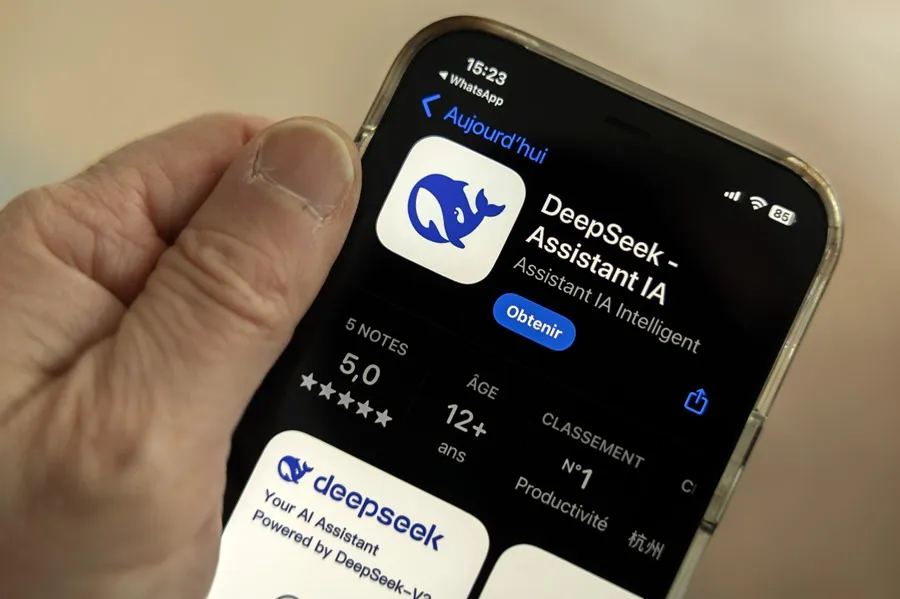
The Government of South Korea suspended the local service of the Chinese Artificial Intelligence (AI) application DeepSeek due to doubts about the data collection system, which are stored on servers in China, and the possibility of leaking sensitive information.
The South Korean Personal Information Protection Commission (PIPC) said on Monday that the service was suspended at 18:00 local time on Saturday (9.00 GMT) and will resume after “improvements” are made in accordance with South Korea’s personal information protection laws.
The measure comes after the PIPC issued an official warning about the Chinese AI model advising against its use and local government ministries and agencies blocked its use.
The warning came after the PIPC sent a query to the startup asking for detailed information about its data collection policy, and said it plans to request cooperation from the Chinese authorities on the matter through official diplomatic channels.
Meanwhile, the South Korean car company Hyundai Motor had already restricted its employees’ access to DeepSeek, also about possible leaks of their data.
The Ministries of Finance and Environment of South Korea announced two weeks ago the blockade, at least provisionally, of DeepSeek, and thus joined those of Foreign Affairs, National Defense and Economy, Trade and Industry, which prevented connecting to this model of the Chinese language from their terminals.
The Interior portfolio had already recommended to ministries and the 17 regional governments of the country to exercise caution against possible data leaks due to the use of DeepSeek in the face of what it considers a non-transparent data storage process by the Chinese startup.
DeepSeek has revolutionized the global AI landscape after its presentation last month of its most recent language model, which has impressed experts for its more efficient and economical performance when compared to the United States competition.
However, its data management has led countries such as Italy or Australia to analyze the service more deeply and impose access restrictions on public institutions arguing risks to national security.
Meanwhile, the Chinese digital giant Tencent, developer of the most popular messaging platform in the country, WeChat, rose more than 6% on the stock market on Monday before the launch of a beta of that application that allows you to make queries on DeepSeek’s R1 artificial intelligence (AI) model.
Specifically, Tencent securities, the highest value per trading weight of the Hong Kong Stock Exchange, rose 6.15% around 10.00 local time and exceeded Hong Kong $500 ($64.3) per unit for the first time since mid-2021.
At the moment, this beta is only available for the Chinese version of the application, which has more than 1.3 billion users.
In it, it will be possible to select the DeepSeek model apart from the one developed by Tencent, called Hunyuan. This, according to a representative of the company quoted by the Hong Kong newspaper South China Morning Post, will allow access “to the full version of the DeepSeek R1 model for free to enjoy a more diverse search experience.”
International
Colombia: Search continues for missing limb of italian scientist found dismembered

Rescue teams and Colombian authorities continued their search on Tuesday for the missing left leg of Italian biologist Alessandro Coatti, whose dismembered body was found in the Caribbean city of Santa Marta.
Coatti, 42, was a molecular biologist who had been traveling through South America after working for eight years at the Royal Society of Biology (RSB) in London.
He had been staying in a hotel in Santa Marta since April 3 and was later reported missing. His dismembered body began to be discovered on April 6, when parts were found inside a suitcase abandoned near a football stadium in an area known as Bureche.
“We’re conducting the search along the riverbanks and in the water to identify possible spots where, due to the river’s current, the missing left leg might be located,” Karlotz Omaña García, director of the Magdalena Civil Defense, told The Associated Press. Despite covering a 500-meter radius, the limb was not found.
Authorities have not named any suspects or shared possible motives. A reward of more than $11,000 has been offered for information leading to those responsible for the foreign scientist’s murder.
Police continue to reconstruct Coatti’s final movements. According to Colonel Jaime Ríos, head of the Santa Marta Metropolitan Police, the Italian biologist arrived in Colombia in January and had visited several locations, including Medellín, before traveling to Santa Marta.
Security footage shows Coatti was in downtown Santa Marta the night before his body was found, the colonel added.
Santa Marta, a popular Caribbean tourist destination, is known for its clear beaches. Police believe Coatti may also have visited Tayrona Park, a protected coastal area located about 34 kilometers (21 miles) from the city center.
International
MPV Denounces Electoral Blockade as Secretary-General is Disqualified for May Elections
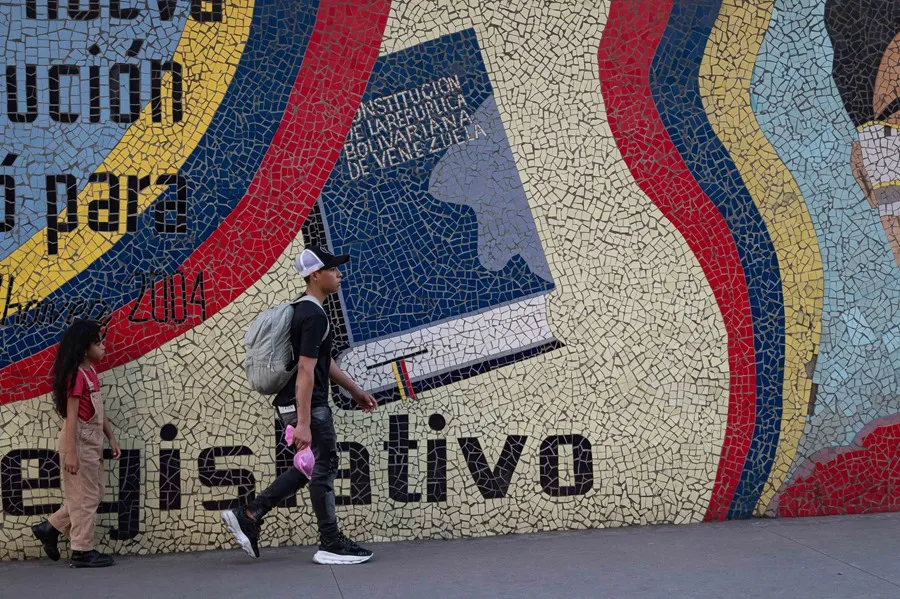
The anti-Chavista party Movement for Venezuela (MPV) denounced on Monday that it was “prevented” from submitting its candidates for the regional and legislative elections on May 25, elections rejected by opposition leaders Edmundo González Urrutia and María Corina Machado.
“MPV, being an active and recognized party in the National Electoral Council (CNE), was prevented from submitting candidates for the current electoral process,” stated the political group through a communiqué on X.
Additionally, the group denounced that its Secretary-General, Simón Calzadilla, was “suddenly disqualified,” as the opposition leader warned last Friday. He also explained that he attempted to access the CNE’s automated candidate submission system but, as he added, the portal showed that he was not authorized to create a user and submit the MPV candidates.
For the party, its “strong decision” to participate in the May elections “highlighted the true nature of this electoral process,” which it described as “extremely flawed.”
International
Maduro Plans Major Workers’ March on May 1st to Defend Venezuela’s Freedom
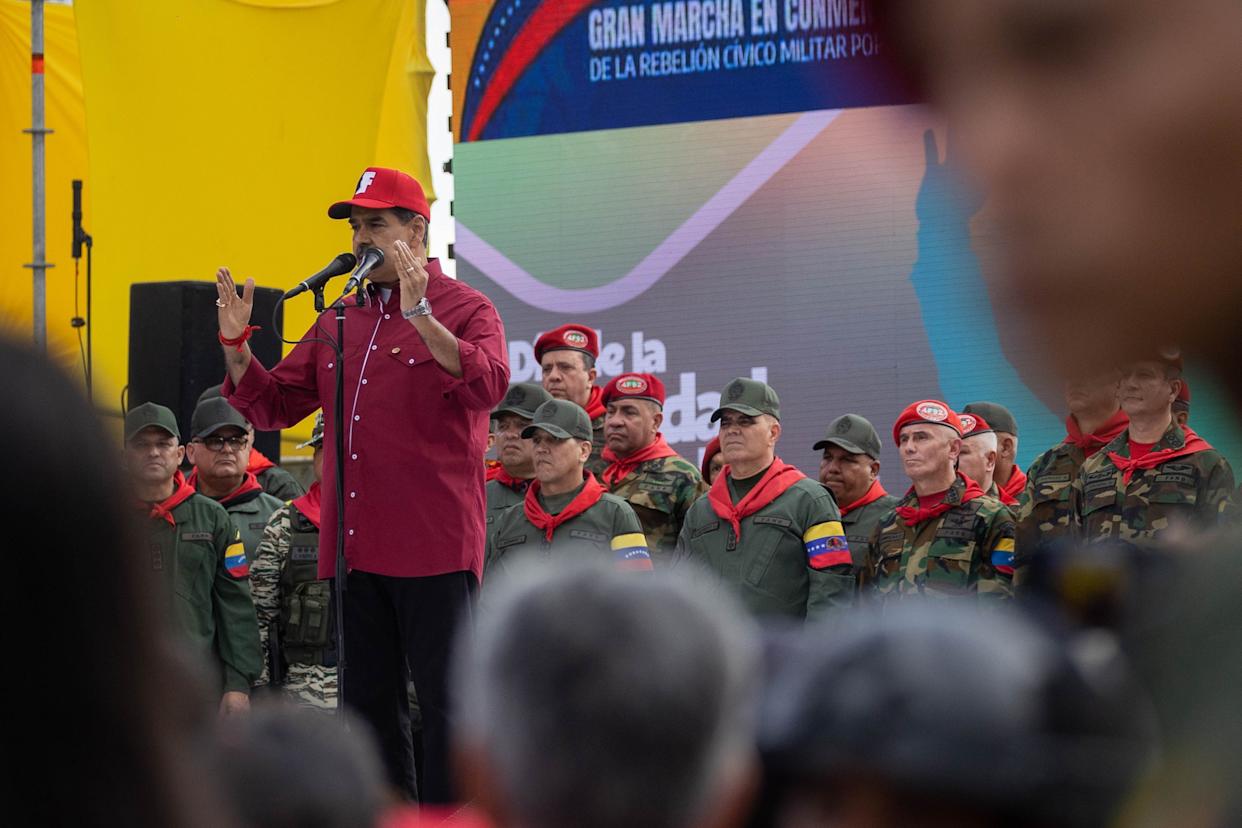
Nicolás Maduro, who swore in for a third term in January following his controversial re-election, called on Monday for the “working class” and the “armed people” to gather for a concentration on May 1st for peace, as part of the celebration of International Workers’ Day.
“Let’s have a powerful march of the working class, the combat bodies, and the Bolivarian National Militia in all the cities of the country, from end to end, working class and armed people in the streets shouting for peace,” said the chavista leader in a broadcast on the state channel Venezolana de Televisión (VTV), surrounded by military authorities.
He also stated that Venezuela is more armed than “ever” to “defend the sacred dream of a free homeland, the sacred soil of a heroic land, Venezuela.”
Maduro called on all military personnel to “stay in shape” with a “deployment capacity” and also to have “a very clear view of the entire national territory.”
-
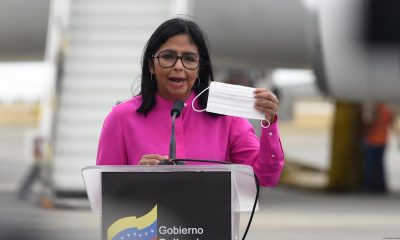
 International3 days ago
International3 days agoVenezuela accuses Guyana of “warlike intentions” after UK defense deal
-

 Central America4 days ago
Central America4 days agoSpanish Ex-Congresswoman Calls for ‘Bukele-Style’ Security Policies in Europe
-
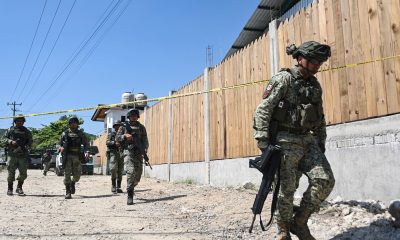
 International4 days ago
International4 days agoTrump Authorizes Military to Take Control of Federal Land Along U.S.-Mexico Border
-

 International3 days ago
International3 days agoNightclub Collapse in Dominican Republic Claims 226 Lives
-

 Central America2 days ago
Central America2 days agoHonduran Police Offer $135K for Tips Leading to the Arrest of Romeo Vásquez
-

 International2 days ago
International2 days agoMaduro Plans Major Workers’ March on May 1st to Defend Venezuela’s Freedom
-

 Central America17 hours ago
Central America17 hours agoPetro questions Ecuador’s vote, cites reports of military control and arrests
-

 International2 days ago
International2 days agoMPV Denounces Electoral Blockade as Secretary-General is Disqualified for May Elections
-

 International17 hours ago
International17 hours agoColombia: Search continues for missing limb of italian scientist found dismembered















